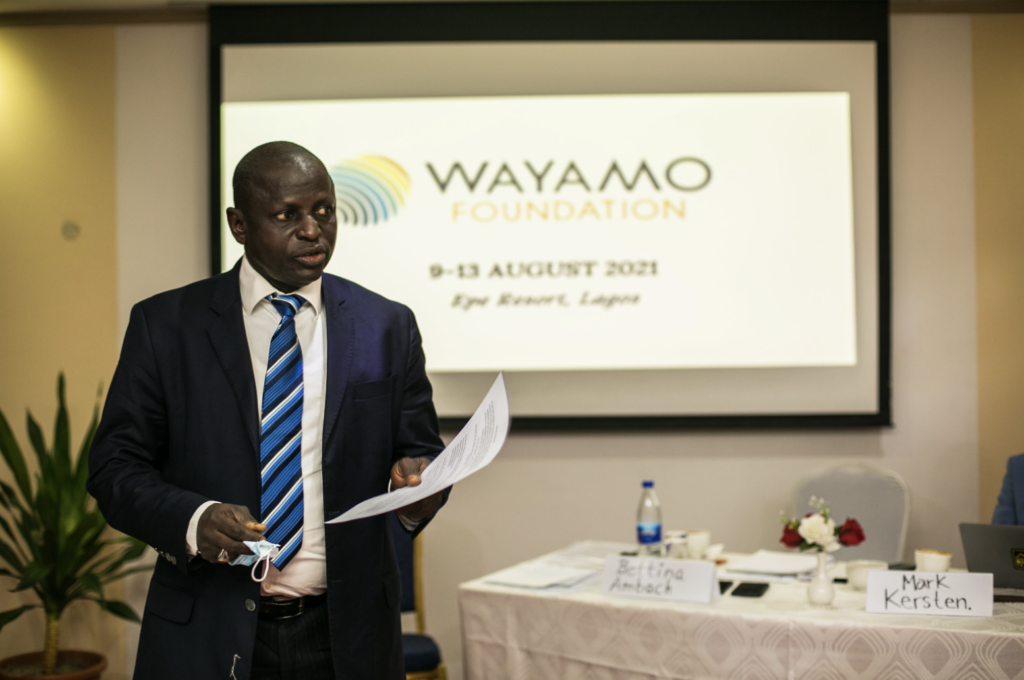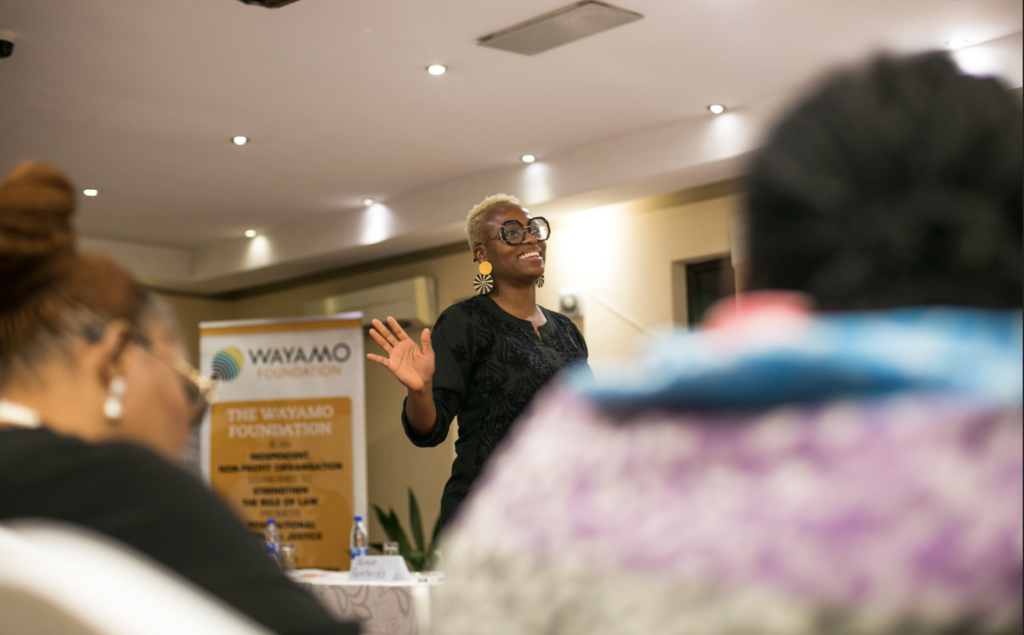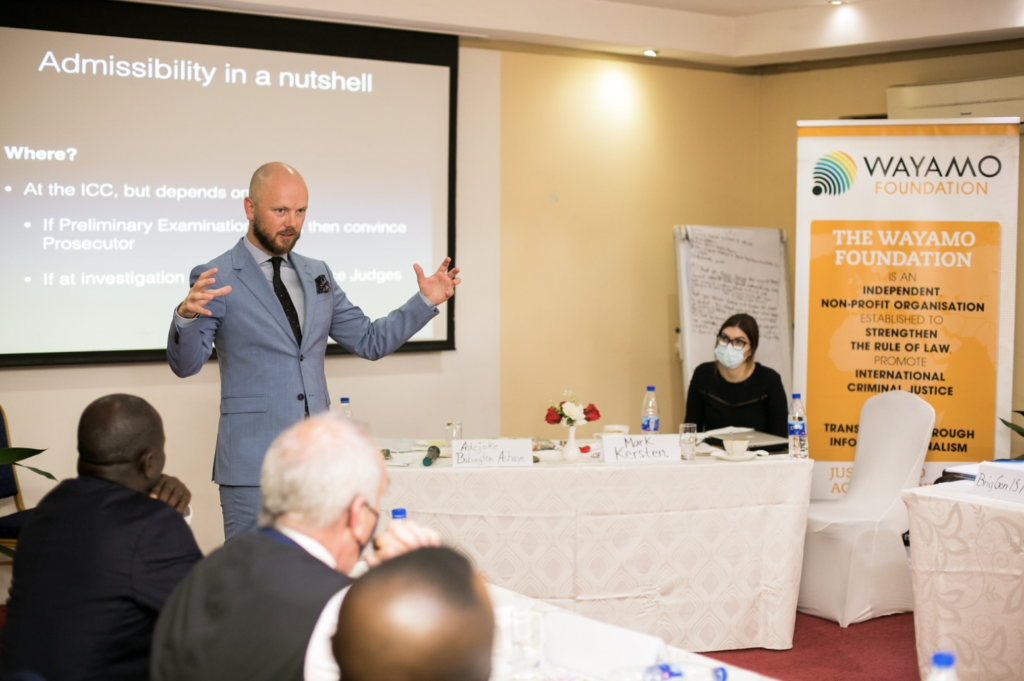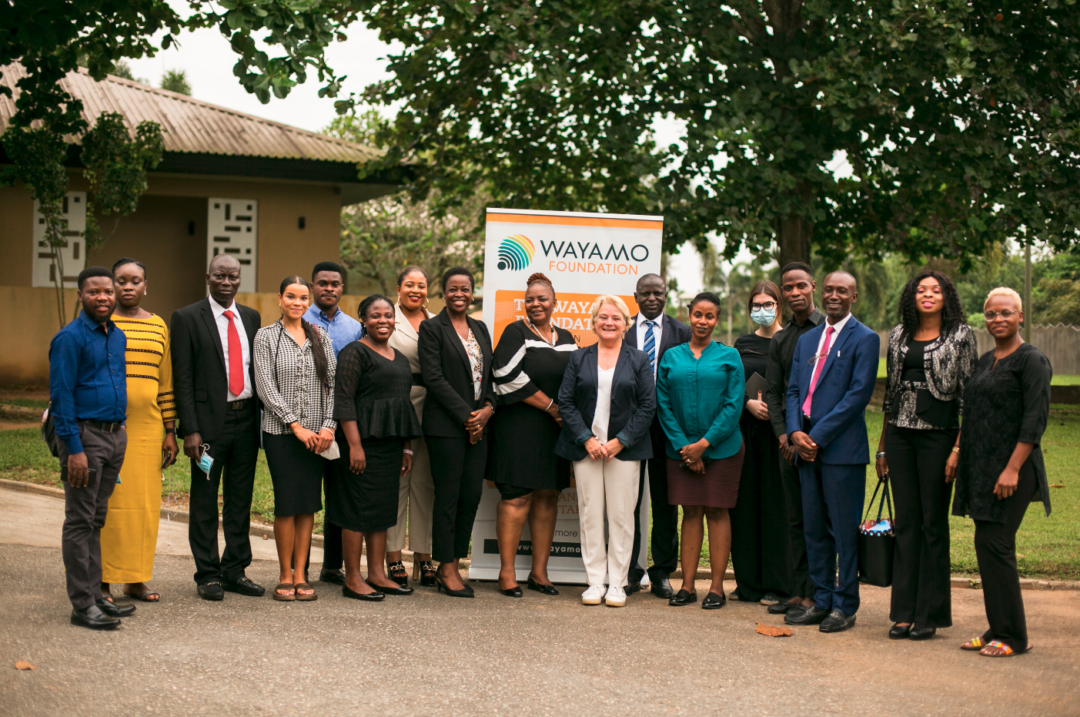Click here for all the event pictures.
The creation of an electronic case-file database: case-filing system, ICC criminality assessment form and Intella
From 9 to 11 August 2021, the Wayamo Foundation held a workshop on the creation of an electronic case-file database within Nigeria’s Complex Casework Group (CCG), covering aspects ranging from the case-filing system to a purpose-designed ICC criminality assessment form and optimal use of Intella software. The workshop in Epe, Lagos followed a hybrid model, with CCG members and local experts attending in person, and international experts joining the event via Zoom.
The CCG is a specialised unit coming under the Directorate of Public Prosecutions at the Ministry of Justice. Together, the Wayamo Foundation and the CCG are creating an electronic case-file database to serve as a repository for terrorism files and their corresponding judgements. This database will also serve to build more complex cases which may address international crimes that fall under the jurisdiction of the International Criminal Court (ICC).
The event was officially opened by Wayamo Director, Bettina Ambach, Assistant Director of Prosecutions Ahmadu Shehu Mainasara, appearing on behalf of the Minister of Justice and Attorney-General of the Federation, and Nigerian Director of Public Prosecutions, Mr. A. M. Babadoko.

Ahmadu Shehu Mainasara, Assistant Director, Federal Ministry of Justice
A two-man team, made up of the CCG’s scanning and digitisation expert, Raphael George, and CCG Prosecutor, Matthew Odu Una, started the day with a presentation on the digitisation process, during which they outlined the work completed and the road ahead. After a short tea break, they were followed by Rebeka Juhosová, legal researcher and data-management expert, who devoted the remainder of the day to hands-on Intella training. Her session was practically oriented, and characterised by group exercises and an open flow of dialogue throughout.
Day 2 began with Kris Kotarski, Digital Programmes Manager, Wayamo Foundation, joining the group via Zoom to present the CCG case-assessment form, an electronic document purpose-designed to help CCG prosecutors better address ICC criminality on their charge sheets. Next up was International Law Specialist and former ICC investigator, Adejoké Babington-Ashaye, who, by combining her lecture with practically oriented group exercises, took the participants through the process of drafting charges that address ICC criminality.
The day was then wrapped up by Kris Kotarski, who re-joined the group via Zoom to deliver a session aimed at bringing together the knowledge acquired throughout the two days and appropriately entitled, “Building a digital workflow for the CCG: digital case-filing system, the CCG assessment form for ICC criminality and Intella”.
On the third and final day of the programme, the CCG was joined by 19 officers belonging to the Nigerian Armed Forces. A brief introductory session and discussion amongst the participants was followed by an in-person lecture on international criminal investigations, given by Adejoké Babington-Ashaye.

Adejoké Babington-Ashaye, Doctoral Candidate Johns Hopkins SAIS, International Law Specialist, and former investigator, International Criminal Court
The afternoon kicked off with Olawale Fapohunda, Ekiti State Attorney-General and Commissioner for Justice, talking to participants about the importance of military compliance with human rights. After a short tea break, he was followed by Mark Kersten, Senior Consultant at the Wayamo Foundation, who spoke on the principle of complementarity and its relevance in Nigeria. The day was brought to a close with a brief presentation by Matthew Odu Una, who confirmed that the CCG was ready to proceed with the next batch of trials of suspected Boko Haram members. In a spirit of collaboration, he asked the military to help ensure that all the necessary preparations were made for these trials to be held as soon as possible.

Mark Kersten, Senior Consultant at the Wayamo Foundation
The comments in the evaluations provided valuable insight. The workshop was received very positively, being alternately described as “very educative”, “relevant”, “eye-opening”, “exciting”, “extremely useful”, “stimulating, robust, forward-looking, engaging and extremely insightful”. One participant even said that the workshop “can be judged as my best training in a long time”.
Maybe most importantly, the workshop reminded participants of “the extent and importance of the work being done and the need to give it the seriousness that it deserves”. For another participant, “it served as a reminder that we can keep the ICC away if we persist in the prosecution of our terrorism cases”. The discussions and presentations would therefore appear to have encouraged the participants to continue working hard towards achieving the goals set. “They may seem like baby steps”, wrote one participant, “but they will all be worth it. It is the bigger picture that matters.”
In terms of topics to be added to the curriculum, participants expressed the hope that future workshops would include: battlefield evidence; interagency collaboration between investigators and prosecutors; further Wayamo-facilitated conversations with the military; victims’ rights; and the art of cross-examination.


